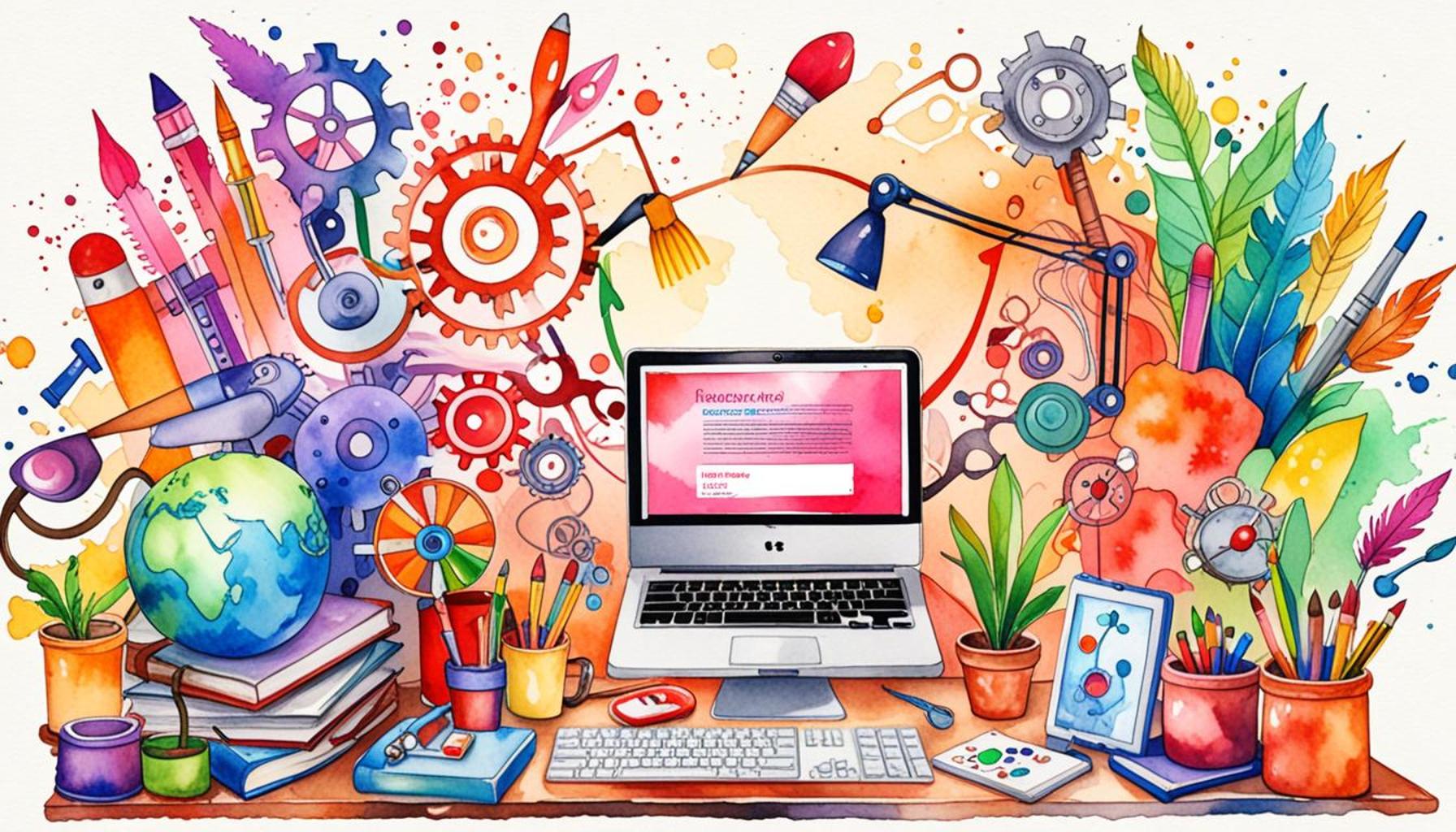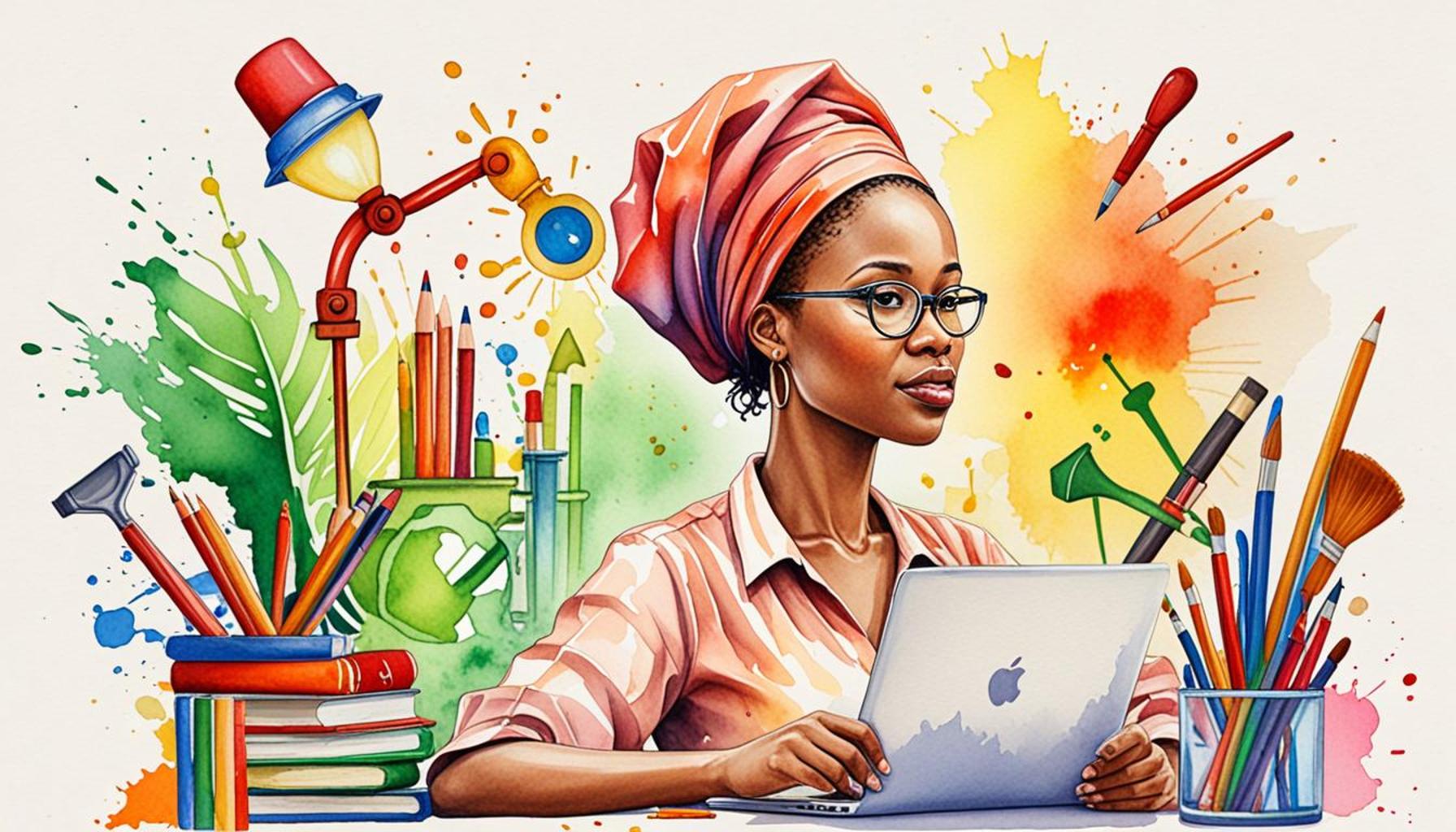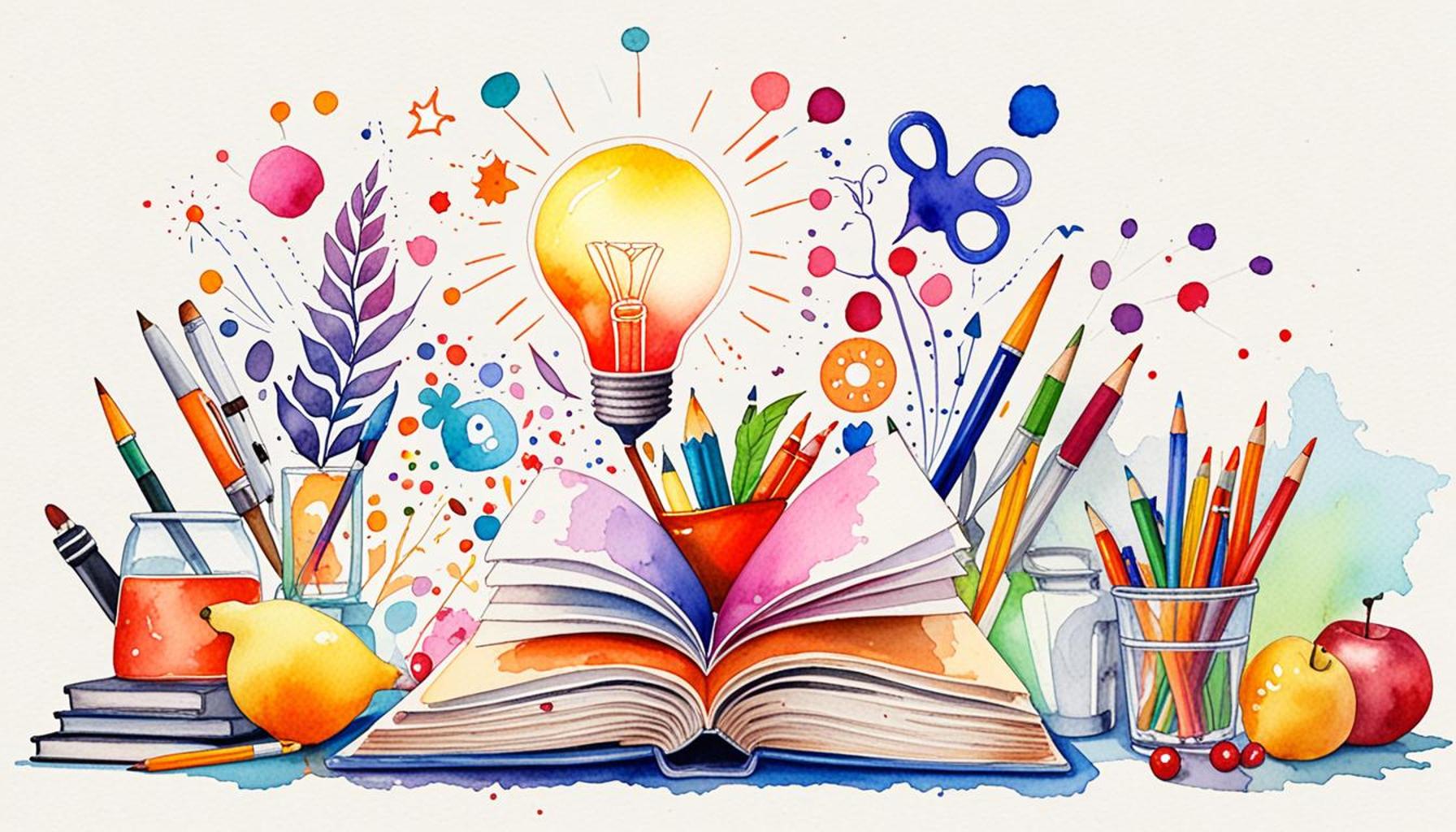The Role of Technology in Continuous Learning: Tools that Facilitate Personal and Professional Growth

The Role of Technology in Continuous Learning
In an era defined by rapid advancements, technology plays a pivotal role in enhancing continuous learning, transforming how individuals acquire knowledge and skills. The explosion of digital tools and platforms provides unprecedented opportunities for personal and professional growth. This shift is particularly significant in today’s global economy, where adaptability is critical for success. Continuous learning is no longer confined to formal classroom settings; it has transcended geographical barriers, allowing anyone with internet access to become a lifelong learner.
Among the numerous transformative tools available today, a few stand out for their impact:
- Online Courses (MOOCs): Platforms like Coursera and edX have democratized education, offering courses from elite universities such as Harvard and MIT. For instance, Nigerian learners can enroll in courses on data science, artificial intelligence, or digital marketing, gaining knowledge directly applicable to their local job markets.
- Mobile Applications: Apps like Duolingo and Udemy have revolutionized learning on-the-go. Duolingo, for example, supports language learning with interactive lessons, enabling users in Nigeria to learn English, French, or local dialects whenever they have free time. Whether through short quizzes or video lectures, these apps cater to diverse educational needs, making them ideal for busy professionals.
- Virtual Reality (VR): This technology is emerging as a game-changer, particularly in practical fields such as healthcare and engineering. For instance, medical students in Nigeria can use VR simulations to practice surgeries in a risk-free environment. This approach allows for hands-on experience without the need for patients, making it a valuable tool in medical training.
Despite the tremendous potential of these tools, challenges remain. Access to reliable internet services is still a hurdle for many Nigerians, particularly in rural areas where connectivity can be sporadic. Furthermore, the cost of data can be prohibitive, limiting how much individuals can engage with online content. It becomes crucial to evaluate available resources, such as community centers offering free Wi-Fi or universities providing access to educational platforms.
As the landscape of education continues to evolve, understanding how to adapt and effectively utilize these tools is imperative. Continuous learning harnessed through technology can lead to a more skilled and competitive workforce, essential for navigating the complexities of the 21st century. In Nigeria, where youth unemployment is a pressing issue, embracing these digital advancements can provide new avenues for career enhancement and economic development.
In conclusion, as technology continues to shape our lives, it is vital for individuals to view these tools not just as educational resources, but as essential instruments for personal and professional transformation. By leveraging the power of online courses, mobile applications, and virtual reality, learners can empower themselves and contribute significantly to the growth of their communities.
YOU MAY ALSO LIKE: Read read another article
Transformative Tools for Continuous Learning
The landscape of education has been dramatically reshaped by innovative technological advancements, presenting learners in Nigeria with powerful tools to enhance their skill sets and broaden their horizons. As individuals increasingly seek personal and professional growth, understanding these tools and effectively utilizing them becomes essential. Below, we explore some of the most impactful technologies that are facilitating continuous learning.
1. Online Learning Platforms
The rise of Massive Open Online Courses (MOOCs) has revolutionized access to quality education. Platforms such as Coursera, Udemy, and Khan Academy offer a plethora of courses ranging from computer programming to creative writing, often at little or no cost. These programs are flexible, allowing learners to set their own pace and fit their education around their busy schedules. For instance, a recent study showed that over 50% of Nigerian professionals who enrolled in online courses reported significant improvements in their job performance. With access to courses from global institutions, learners can acquire skills that are critical in a competitive job market.
2. E-Learning and Mobile Applications
Mobile applications have become a constant companion for learners keen on maximizing their time. Applications such as Duolingo and LinkedIn Learning provide easy access to educational content on smartphones, allowing users to learn new languages or develop professional skills during commutes or breaks. According to reports, Duolingo boasts over 500 million users globally, with many Nigerian learners taking advantage of its gamified approach to language education. This trend of learning through apps highlights a shift towards more engaging and interactive methodologies that cater to diverse learning styles.
3. Social Media and Networking
Social media platforms like LinkedIn and Facebook have emerged as not just social networking sites, but as valuable learning communities. They connect individuals globally, allowing them to share knowledge, experiences, and opportunities. Through specialized groups and discussions, users can seek advice, participate in webinars, and access valuable insights shared by industry experts. This community-driven approach to learning fosters collaboration and networking, essential components in professional development.
4. Artificial Intelligence and Personalized Learning
The integration of artificial intelligence (AI) in learning environments is another significant advancement. AI-powered platforms such as Knewton and Socratic offer personalized learning experiences tailored to individual learners’ needs. By analyzing user interactions and progress, these tools provide customized recommendations that can enhance understanding and retention. In Nigeria, where educational resources may be limited, AI tools can bridge gaps by offering individualized support to learners, helping them to grasp complex concepts more effectively.
While these tools promise to enhance the learning experience, it is essential to acknowledge the accompanying challenges. As technological advancements continue to flourish, navigating issues such as digital literacy and the digital divide remains crucial. Ensuring equitable access to technology and addressing the varying levels of digital competency will be instrumental in maximizing the impact of these learning tools.
The Role of Technology in Continuous Learning: Tools that Facilitate Personal and Professional Growth
In the ever-evolving landscape of education, technology has emerged as a powerful ally in the pursuit of continuous learning. From online courses to mobile applications, the tools available today empower individuals to seek knowledge and enhance their skills anytime, anywhere. By leveraging these technologies, people can take control of their own learning journeys, ensuring growth both personally and professionally.One of the most notable tools is the rise of Massive Open Online Courses (MOOCs). Platforms like Coursera and edX offer a wide range of subjects taught by renowned institutions. This democratization of knowledge not only promotes accessibility but also encourages learners to explore diverse fields that might have otherwise remained out of reach. It allows them to enhance their expertise in their current roles or pivot to entirely new careers.Moreover, technology enables personalized learning experiences. With the use of artificial intelligence, many educational platforms now assess users’ progress and tailor content to suit their learning pace and style. This adaptability fosters higher engagement and retention of information, as learners can focus on areas where they need more help or challenge themselves with advanced materials.Another vital aspect is the integration of collaborative tools such as Slack, Zoom, and Asana. These platforms facilitate real-time communication and collaboration among peers, making it easier to share knowledge and insights. Group projects and discussions foster a community of learning, which not only enhances understanding but also builds essential professional skills like teamwork and communication.Finally, the role of technology extends beyond traditional learning environments; it’s also prevalent in workplaces. Companies increasingly invest in online training programs, webinars, and virtual mentorships to upskill their employees. This commitment not only boosts employee morale but also drives productivity and innovation, aligning personal growth with organizational goals.By embracing technology as a cornerstone of the learning process, individuals and organizations alike can cultivate an environment where continuous learning is not only valued but also achievable. As we delve deeper into the various tools and trends, it becomes clear that the potential for growth remains limitless.
| Category | Description |
|---|---|
| Ongoing Education | Online courses and innovative learning platforms allow for continuous educational opportunities. |
| Collaboration Tools | Technologies like Slack and Zoom support teamwork and enhance learning through shared knowledge. |
In conclusion, technology significantly contributes to creating a culture of lifelong learning, making personal and professional growth more accessible and achievable than ever. By harnessing the right tools, individuals can unlock their potential and thrive in a rapidly changing world.
LEARN MORE: This related article may interest you
Emerging Technologies Shaping Continuous Learning
As the evolution of technology continues to impact learning, several emerging tools and methodologies are particularly noteworthy for their potential to enhance both personal and professional development. In Nigeria, where the educational landscape is rapidly changing, these tools play a crucial role in advancing continuous learning.
5. Virtual and Augmented Reality
The integration of Virtual Reality (VR) and Augmented Reality (AR) into learning experiences is paving the way for immersive educational opportunities. These technologies offer simulations and interactive environments that allow learners to engage with complex concepts in a tangible way. For instance, in fields such as medicine, VR is used for simulated surgical procedures, providing invaluable hands-on experience without the risks associated with real-life practice. In Nigeria, educational institutions are beginning to explore the use of VR in science labs and geography classes, giving students a unique way to visualize and interact with their subjects.
6. Webinars and Virtual Conferences
With geographical limitations no longer a barrier, webinars and virtual conferences have emerged as powerful platforms for knowledge sharing and networking. In Nigeria, these events enable professionals to access expertise from leaders in their fields, regardless of location. Recent statistics indicate that participation in online conferences has surged, with a 60% increase in attendance from Nigerian professionals seeking to enhance their knowledge portfolios. The convenience of attending workshops and lectures from the comfort of one’s home not only encourages continued education but also allows for real-time interaction and feedback, critical in the learning process.
7. Gamification of Learning
The concept of gamification—applying game-like elements to learning experiences—has gained traction as an effective strategy to engage learners. Tools that incorporate elements such as challenges, rewards, and leaderboards have shown a marked increase in motivation among users. In Nigeria, educational apps like Quizlet and Classcraft have found success by creating interactive learning environments where users can compete with peers while mastering new topics. This innovative approach not only makes learning enjoyable but also can lead to improved retention of information and higher rates of course completion.
8. Podcasts and Audiobooks
As the demand for accessible learning continues to rise, podcasts and audiobooks have emerged as valuable resources for continuous learning. Providing the ability to learn on-the-go, these audio formats allow individuals in Nigeria to enhance their knowledge while commuting or engaging in daily activities. Platforms like Spotify and Audible offer a wealth of content on diverse topics ranging from business to personal growth. Recent surveys reveal that about 30% of Nigerians have incorporated podcasts into their learning routine, benefiting from insights shared by leaders and experts across various sectors.
The proliferation of these technologies showcases the vast potential of learning in an increasingly interconnected world. However, as more tools become available, it is essential for learners to discern which platforms truly offer value and align with their specific educational goals. By understanding and leveraging these technologies, individuals can significantly enhance their capacity for continuous learning and development.
CHECK OUT: Click here to explore more
Conclusion: Embracing Technology for Lifelong Learning
As we have explored, the intersection of technology and continuous learning heralds a transformative era for personal and professional growth. The various tools and methodologies discussed, from Virtual Reality to gamification, showcase how innovation can make learning not only more accessible but also more engaging. In Nigeria, where educational reforms are continuously unfolding, these technologies present unprecedented opportunities for individuals to enhance their skill sets and adapt to an ever-changing job market.
The shift towards digital resources like webinars, podcasts, and interactive platforms enables learners to transcend geographical boundaries and engage with expert knowledge in real-time. This democratization of education means that aspiring professionals can now access world-class content and insights from the comfort of their homes. Furthermore, as the educational landscape evolves, it is crucial for learners to critically assess the vast array of available tools, ensuring that they not only fit their personal learning styles but also align with career aspirations.
In conclusion, embracing these technological advancements is essential for anyone pursuing continuous learning in today’s fast-paced environment. With the right mindset and the right tools, the possibilities for growth are limitless. By investing time in these resources and remaining open to new learning experiences, individuals can unlock their potential and contribute meaningfully to their fields. The journey towards lifelong learning starts now, and technology is the key that can open numerous doors.


